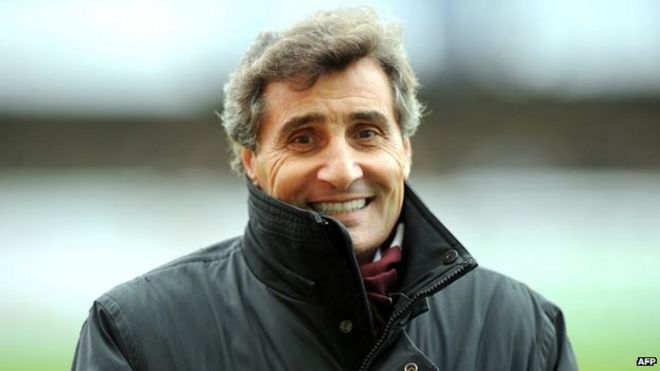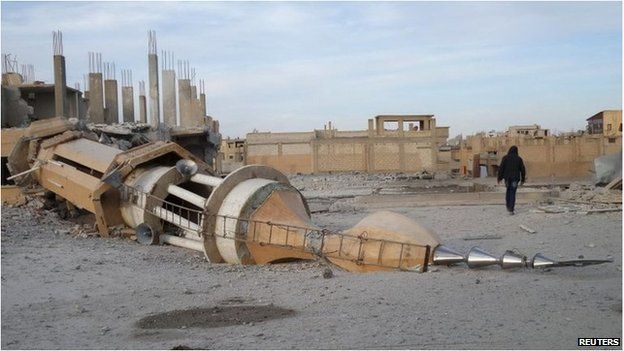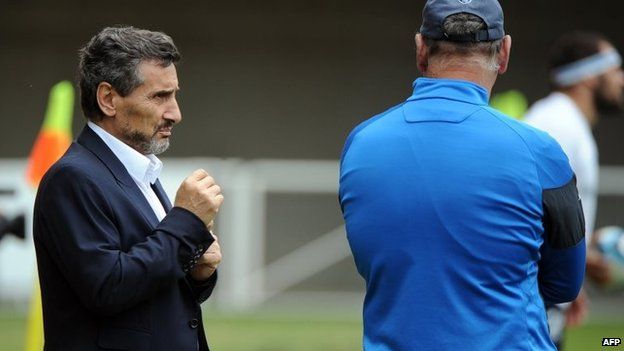Don’t ask Mohed Altrad how old he is. He may be a billionaire, but he doesn’t know his age. No records. He’s round about 65, perhaps. Mr Altrad told me his astonishing story in the unlikely surroundings of one of the poshest hotels in that nest of posh, Monte Carlo.
Mr Altrad told me his astonishing story in the unlikely surroundings of one of the poshest hotels in that nest of posh, Monte Carlo.
Last year he was chosen as French Entrepreneur of the Year. The other day he went to Monte Carlo and – out of 52 national award winners – won the title World Entrepreneur of the Year in the annual contest organised by the international business services giant Ernst and Young.
An extraordinary rags to riches journey. He told me about it. Mohed Altrad speaks considered English, slowly, fluently. He doesn’t sleep much. He thinks a lot and writes a lot. About that past of his, and his present.
Mohed Altrad was born in the Syrian desert, a Bedouin. His father was the leader of the tribe. His mother was poor, disregarded. His father raped his mother, twice. The result of this impulsive relationship: two sons. Mohed Altrad’s elder brother died, killed by his father.His mother died on the day he was born.
Mr Altrad spent part of his youth in Raqqa, Syria, now an ISIS stronghold
He was brought up by his grandmother in poverty. She assumed he would be a shepherd. No need for school. But the curious boy was intrigued when he saw the others were being taught. He peeped into the class through a crack in the wall and glimpsed calligraphy on the blackboard, something of course, that he could not understand.
Eventually he persisted and got to the school. He was a clever boy; he did well. So well that his classmates revolted when the shepherd boy came out top of the class. They carried him off and dug a hole in the desert, shoved him into it head first and and ran off.
Somehow Mohed Altrad wriggled out, and escaped. “The instinct of life,” he calls it. And his luck began to turn. A childless local couple took him under their wing. He went to school, did well. In Raqqa, the city that is now capital of the ISIS, the Islamic state, a takeover that saddens him.
Sixty years ago the position of Syria was also complicated: a military dictatorship under the influence of France and the Soviet Union. Mr Altrad won a place at a university in Kiev, only to be told the course was full.
Instead he was sent off to one of the oldest universities in Europe, Montpellier in France. He arrived late one chilly November evening, not knowing any French.
But that did not hold him back for long. Eventually he got a PhD in computer science. He worked for some leading French companies, became a French citizen, and then worked for the Abu Dhabi National Oil Company, where there was nothing to spend his earnings on. He saved money.
He itched to be in charge of his own destiny. Back in France he co-founded a company making portable computers…suitcase-sized, he says. When it was sold, he had more capital.
Eventually Mr Altrad and a partner bought a small French scaffolding business. For one franc and lots of liabilities. It was bleeding money.
Not high tech, but scaffolding is always needed, he thought. And the small contractors buying or renting his steel poles also needed wheelbarrows and cement mixers. Another leg for the business.
The new owners turned it round, incentivising staff with performance bonuses. It started generating cash.
Mr Altrad used the money to expand, by buying other companies in what was a fragmented, local industry undergoing widespread consolidation. He tried to treat his employees well, asking them to respect a sheet of principles they were shown when they joined the firm.
He began to expand abroad, sticking to the same business and to similar principles. He added to scaffolding the things builders needed. And over 30 years, this small business grew to encompass 170 companies under the Altrad umbrella. Seventeen thousand people, $2bn (£1.3bn) turnover, $200m annual profit.
He has just doubled the size of the company by buying a Dutch rival.
Mr Altrad is president and part owner of the rugby team in his adopted home: Montpellier
Despite the fact that he had such success, and won such acclaim, Mohed Altrad remains a quiet and thoughtful leader.
“You can ask why I am doing this,” he says. “It has never been for money. I am trying to develop a humanistic venture to make the people who work for me happy.”
“If they are happy, they are more efficient, better performers, they have a better life.” That—he says—is what companies ought to aim for. “If I am happy, I work well.”
Mohed Altrad believes in financing business growth out of cash flow. “If you go to the financial markets,” he says, “you are a prisoner of the banks. We reinvest our earnings.”
Altrad, the company, has been taking part in a great consolidation of a very fragmented, locally-based industry. Even so, it strives not to behave as a monolith.
“A company is an identity, a piece of history; its products, clients,” he says. “The general tendency of big groups like us is to reshape [the companies they buy] and make them more or less standard. This is absolutely against my concept.” So Altrad companies keep their own names, and their own identities.
But there is what Mr Altrad calls a charter of shared values for all the companies, which new recruits are asked to read, subscribe to… or improve. “It’s a human venture,” he says.
“If you are interested in a woman,” he told me, “and your first reflex is to say don’t dress like this, don’t use this make-up, then what are you doing? It is precisely the same thing when you buy a company.”
He uses his sleepless nights to write books… some of them about economics. He has also written an autobiographical novel; Bedouin is how the title translates into English.
It has been chosen by French education officials to be read in schools, in millions of copies. His story goes on having resonance in a Europe where immigration is a big issue.
“I am here in front of you,” he said to me, “but you can say I have a life of three thousand years. This life of the desert, it has its own rules, which started 3,000 years ago. Talking to you here in this nice place, to me it’s very strange to do that; that [feeling of strangeness] is in my blood, in my everyday life.”
Mohed Altrad is always aware that something (like being buried alive in the desert) can happen, always a bit scared. “So this feeling of freedom is always here as well,” he says.
I asked him if he was now happy. Not really, he says.
“I have a debt in life that I know I will never be able to reimburse. This is to give life again to my mother who has no life. She had a very short life… 12 or 13 years. She was twice abused. She saw her son die. She died immediately the day I came.”
To keep the spirit of his mother alive is the extraordinary motivation of Mohed Altrad, Entrepreneur of the Year.
Peter Day’s interview with Mohed Altred will be broadcast on Global Business on the BBC World Service on 11 June.





























